第44章
THE MAGIC WAND
This is the last lesson of our present course that requires a clear definition of the terms employed in the title thereof, for the twelfth, and final study is, perhaps, fortunate in having for its title a word that has not, so far, been misused and distorted from its original sense.
The Magic Wand.The words savor of everything that the young tyro in Occult art can picture to his mind; of the midnight magician and his mysterious, if not diabolical, arts, muttering his incantations, working his gruesome spells, and raising the restless ghosts of the dead.Strange fancies, these, and yet, so corrupt and ignorant have become the conceptions of the popular mind regarding the once sacred Science of the Temple and the psychological powers of Nature, that we very much question, if the ideas above stated were not very similar to the originals of each modern student, before he had become acquainted with the deeper truths--the realities of Occult philosophy.
We will commence our study by a careful investigation of the original meaning of the words Magic Wand, since those who were the masters and originators thereof, are far more likely to know more about them than their degenerate offspring of a later age.Few, comparatively, would believe that the words MAGIC, MASON, and IMAGINATION, are the present unrelated descendants of the same original conception--THE ROOT IDEA; but such is the case.First, then, we will examine their modern meanings.Magic is the unholy art of working secret spells, of using invisible powers, and holding intercourse with the unseen world of ghosts and demons, by means of enchantments.It also means the expert deception of the senses by the tricks of a conjurer, SO-CALLED hocus-pocus and fraud, and a magician is either an evil-minded, superstitious mortal, fool enough to believe in charms, or an expert pretender and imposter of the first water, who cheats and deceives the people.A mason is the honorable designation of a builder, who works in stone; metaphysically, a member of a semi- secret society, whose sole advantage is social intercourse and standing;who proclaim fraternity and universal brotherhood theoretically and practice the reverse in reality; a man who apes the Egyptian Mason, knows nothing in reality of Hiram, his master; who knows nothing of the starry Solomon or his mystic temple in the heavens, which Hiram built; and who misconceives the import of the three villains, or assassins; and who, further, knows nothing of that wonderful sprig of myrtle:--in short, a Free Mason, speaking generally, is a man who delights in ideals, social equality, secret fraternity, and plays at mysticism; who parades on the Masonic stage and enacts a role he does not understand.The first meaning, that of a builder, is the most correct.Lastly, the imagination is the exercise of mental imagery--the picturings of silent thought.
And now we will proceed BACKWARDS.Imagination is from the word "image," a form, a picture, and has descended to us from the Latin "imago," which, in its turn, was derived from the old Semitic root, "mag." Mason comes to us from the Latin "mass," which means to mould and form, i.e., to build; and the word "mass," through various transformations, was also derived from the root-word "mag." Consequently, originally, there was but little difference in the ancient idea of building pictures in the mind and erecting the mental idea externally in stone.It is from this fact, that, we have to-day Mental Masons, a la the secret orders, and stone masons, who labor for wages.The Mental Masons have merely lost the knowledge of their art.They should, by rights, be as active and correspondingly useful to-day as their more physical brothers, the masons of stone.
This art would never have fallen into disgrace and disuse, if their daily bread, or material accumulations, had depended upon their efforts in building up the mental, moral, and spiritual attainments, of each other, and bringing their knowledge into more external use, by making the material edifice, the physical body, a purer and more fitting temple, for the Divine soul.
Magic comes from the Latin "magi" and the Greek word "magos," which means wise, learned in the mysteries, and was the synonym of wisdom.The initiated philosopher, the priest, and the wise men, are all of them included in the "magi." Again, tracing this word to its remoteancestor, we find it terminating in the same Semitic root, "mag," but of this strange root no one was able to say much, except that it seemed to belong to the Assyrian branch of the great Semitic race.But quite recently, thanks to our scientific explorers and archaeologists, versed in the mysterious meaning of cuniform inscription; Assyrian scholars now inform us that they have found the hoary, primitive original of it, of magic, magi and imago, etc.It is from an old Akkadian word, "imga," meaning wise, holy, and learned, and was used as the distinguishing title of their wisest sages, priests, and philosophers, who, as may be supposed, gradually formed a peculiar caste, which merged into the ruling priestly order.The Semites, who succeeded the old Akkadian race in the valley of the Euphrates, as a mere matter of verbal convenience, transformed many of the old Akkadian words to suit their own articulation, and "imga" became "mag," and thus "magi." THE BLEND between the Semetic and the older Akkadian race, produced, by fusion of racial blood, the famed Chaldeans.So that we see how old are the words which many of us daily use, but with different meaning.Verily, it makes one feel, when be thinks of magic and its origin, as though he were quite nearly related to the people who honored King Sargon, the Wise, the earthly original of the mystic Solomon of Biblical tradition.The term Wand is an old Saxon word, which primarily signifies to set in motion, to move.From this we derive our word wander, i.e., to roam, and wandering, i.e., moving and continually restless.